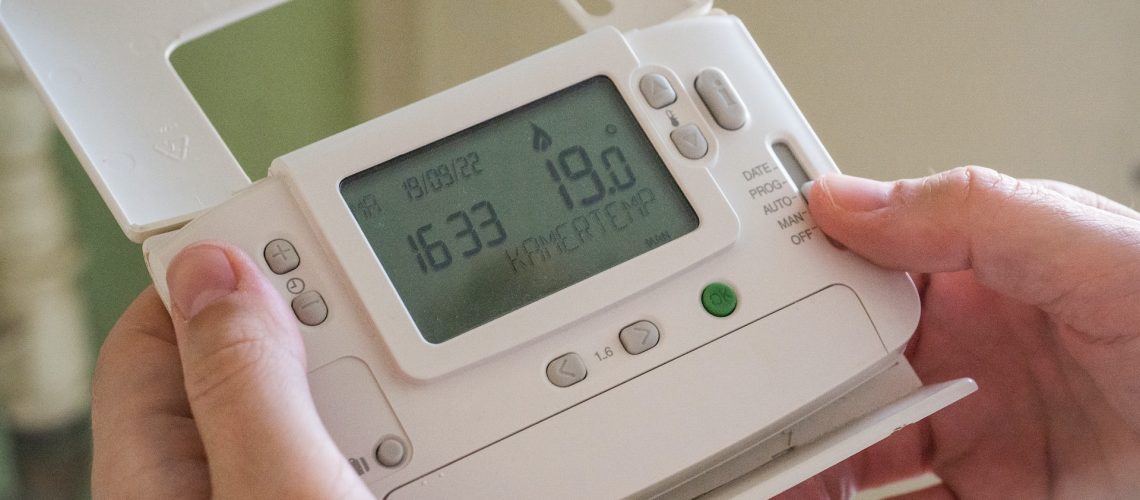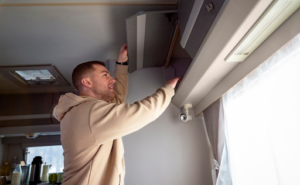Menu

Going Green with Geothermal Heating and Cooling Systems
In an era where sustainable living and energy efficiency are not just buzzwords, but pressing necessities, the significance of geothermal heating and cooling systems has never been more pronounced. These systems, which harness the Earth’s natural thermal energy, present a remarkably eco-friendly and efficient way to regulate indoor temperatures.
With that in mind, this delves into the numerous environmental benefits that geothermal heating and cooling systems confer, ultimately underscoring their critical role in our quest for a sustainable future. From reduced greenhouse gas emissions to minimal environmental disruption, these benefits make a compelling case for the widespread adoption of geothermal technology.
As you explore this enlightening discussion, you’ll gain a deeper understanding of how leveraging the Earth’s innate energy can result in a harmonious coexistence with our environment.
How Geothermal HVAC Systems Work
Geothermal heating and cooling systems work by leveraging the temperature of the ground to provide energy-efficient and reliable climate control. These systems use underground pipes, known as ground loops, filled with water or a water-refrigerant mixture.
During the heating process, the liquid absorbs heat from the earth, and the system transfers this heat to the commercial building. In contrast, when cooling, the liquid absorbs heat from the building and transfers it back into the ground, effectively cooling the indoor environment. There are several types of geothermal systems, designed to suit different properties and ground conditions.
Key Environmental Benefits of Geothermal Systems
1. Reduced Greenhouse Gas Emissions
One of the most significant environmental benefits of geothermal HVAC systems is their capability to reduce greenhouse gas emissions. Traditional fossil fuel-dependent heating systems release significant amounts of carbon dioxide, contributing to global warming and climate change. In comparison, geothermal systems produce minimal greenhouse gas emissions due to their utilization of renewable energy sources, substantially reducing your commercial property’s carbon footprint.
2. Energy Efficiency
Geothermal systems are among the most energy-efficient heating and cooling technologies available today. According to the US Environmental Protection Agency (EPA), these systems can save up to 70% on heating costs and up to 50% on cooling costs compared to traditional HVAC systems. This incredible energy efficiency not only reduces energy expenses but also lessens the demand for non-renewable energy sources, making geothermal systems an eco-friendly choice.
3. Long System Lifespan
The components of geothermal systems are known to have longer operational lifespans than conventional HVAC equipment. Ground loops can last for over 50 years, while heat pumps typically last for over 20 years. This long lifespan means fewer replacements and reduced waste going to landfills, contributing to a more sustainable overall lifecycle for your commercial property’s heating and cooling system.
4. Reduced Water Consumption
Some geothermal systems can help reduce water consumption, particularly in cooling applications. Traditional cooling towers require substantial amounts of water for proper operation, contributing to water waste. In contrast, geothermal cooling systems transfer heat to and from the ground, which requires much less water. This reduced water consumption can be particularly beneficial in areas with water scarcity concerns.
Harnessing the Potential of Geothermal Systems for Your Commercial Property
Implementing a geothermal HVAC system can bring significant benefits to commercial properties in British Columbia. However, it is critical to consult with experienced professionals like Bromac to ensure that you select the right system and design for your unique needs. Here are a few factors to consider when transitioning to a geothermal heating and cooling solution:
1. Ground Conditions
The type of geothermal system you require will depend on the specific ground conditions at your property. The availability of groundwater, soil type, and land area will all influence the viability of various geothermal systems. Bromac can conduct a thorough assessment of your property’s conditions to determine the most suitable geothermal system.
2. Building Size and Load Requirements
Your property’s size, age, insulation, and heating and cooling load requirements will dictate the ideal geothermal system design. Bromac can work with you to accurately calculate the energy demands of your commercial property and design an optimized geothermal system to match those needs.
3. Professional Installation
Proper installation of a geothermal system is crucial to its long-term performance and energy efficiency. Partnering with experienced professionals like Bromac will ensure your system is installed correctly and efficiently, delivering maximum benefits and minimizing potential issues.
4. System Maintenance
A well-maintained geothermal system will provide optimum environmental benefits and cost savings. Regular maintenance from experts like Bromac will ensure your geothermal system continues to perform efficiently and minimize environmental impact throughout its life.
Geothermal Systems: A Powerful Solution for a Healthier Planet
Embracing the environmental benefits of geothermal heating and cooling systems can be a transformative and responsible choice for commercial properties in British Columbia. By partnering with knowledgeable professionals like Bromac, you can ensure the seamless adoption and maintenance of your environmentally friendly HVAC system, contributing to a sustainable future for your commercial property.
By understanding your property’s unique needs and working with experts, you can harness the potential of geothermal systems to provide energy-efficient, cost-effective, and environmentally friendly heating and cooling solutions that benefit your bottom line and the planet. Get in touch with our commercial plumber to start your water heater repair, replacement, or installation!


